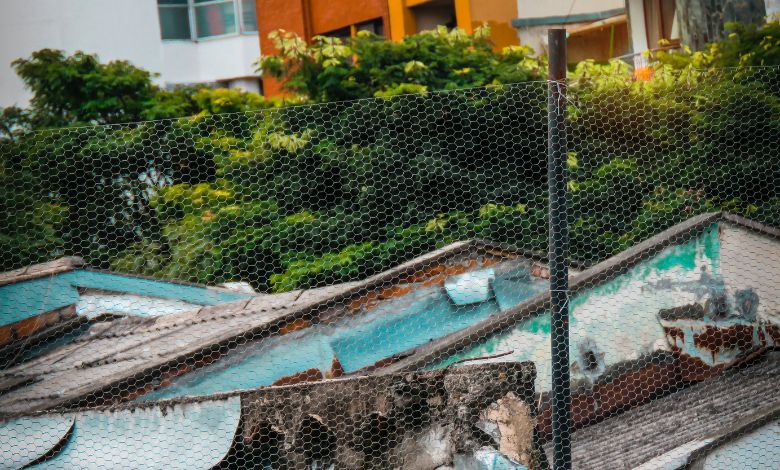C.W. Park USC Lawsuit: Explained (Case Study Included)

C.W. Park USC Lawsuit has been making waves in the legal world, attracting attention from both scholars and enthusiasts alike. With its complex web of allegations, parties involved, and a timeline that reads like a gripping novel, this case study is one that cannot be ignored.
So grab your metaphorical magnifying glass as we delve into the depths of this riveting lawsuit to uncover all the twists and turns along the way. From scandalous accusations to high-stakes legal arguments, get ready for a rollercoaster ride through the halls of justice.
Background on the Case and Parties Involved
In order to fully understand the C.W. Park USC Lawsuit, it’s important to delve into the background of the case and familiarize ourselves with the parties involved. The lawsuit centers around allegations of discrimination and retaliation against Dr. C.W. Park, a former professor at USC. Dr. Park was an esteemed faculty member in USC’s School of Business for over a decade.
However, his career took a turn when he became embroiled in a dispute with his department chair regarding research funding allocation. This disagreement ultimately led to Dr. Park being denied tenure, despite his impressive track record.
The defendants in this case include not only USC itself, but also several individuals within the university administration who were responsible for making decisions related to Dr. Park’s employment status. These individuals are accused of engaging in discriminatory practices based on national origin and retaliating against Dr. Park for speaking out about alleged misconduct within his department.
It is worth noting that this lawsuit has garnered significant attention due to its potential implications beyond just one individual’s experience at USC. Many believe that this case serves as an example of broader issues within academia regarding diversity and academic freedom.
As we continue exploring the details surrounding this lawsuit, it becomes apparent that there are complex legal arguments at play which will shape its outcome.
Key Allegations and Claims
C.W. Park Usc Lawsuit, there are several key allegations and claims that have been made by both parties involved. These allegations form the basis of the legal dispute and provide insight into the issues at hand.
One of the main allegations made by C.W. Park Usc Lawsuit is that they were wrongfully terminated from their position at USC. They claim that this termination was based on false accusations and discrimination, citing instances where they were treated unfairly compared to other employees.
Another major allegation in the lawsuit is that USC engaged in retaliation against C.W. Park for speaking out about unethical practices within their department. The claim asserts that after raising concerns about misconduct, C.W. Park faced a hostile work environment and ultimately lost their job as a result.
Additionally, there are claims of defamation made by both parties involved in the lawsuit. Each side argues that false statements were made about them which damaged their reputation and caused harm to their professional standing.
These allegations and claims set the stage for an intense legal battle between C.W. Park and USC, with each party seeking justice for what they believe to be wrongful actions taken against them.
Timeline of Events Leading to the Lawsuit
In order to understand the C.W. Park USC Lawsuit, it’s crucial to take a closer look at the events that led up to this legal battle. The timeline provides valuable context and sheds light on how tensions escalated between the parties involved.
It all started several years ago when C.W. Park, a former professor at USC (University of Southern California), raised concerns about alleged misconduct within his department. According to Park, he witnessed unethical practices and abuses of power by senior faculty members.
His public statements garnered attention from both media outlets and other faculty members who shared similar concerns. As word spread about the allegations, pressure mounted on USC to conduct a thorough investigation into these claims.
Despite mounting evidence and growing support for an external investigation, USC initially denied any wrongdoing or need for further action. This response only served to fuel public outrage and increased calls for accountability within the university.
As pressure continued to mount, USC eventually launched an internal investigation into the allegations made by Park and others. However, many critics argued that this internal inquiry lacked transparency and independence from those being accused.
The tension reached its peak when C.W. Park filed a lawsuit against USC in an effort to hold them accountable for their handling of his complaints and their alleged failure to address systemic issues within his department promptly.
Analysis of the Case and Legal Arguments
W. Park USC Lawsuit has been a subject of intense scrutiny and debate among legal experts. The case involves complex legal arguments that require a thorough analysis to understand its implications fully.
One key aspect of the case is the allegation made by C.W. Park against USC, claiming breach of contract and fraud. Park argues that USC failed to deliver on its promises regarding academic resources and support during his time as a student at their prestigious university.
On the other hand, USC contends that they provided all necessary resources and support to Park throughout his studies but he did not meet the required standards academically.
Legal experts are examining these arguments closely, considering factors such as contractual obligations, misrepresentation claims, and evidence presented by both parties. They are also evaluating whether there were any circumstances or events beyond either party’s control that may have influenced the outcome.
Additionally, attention is being given to any relevant precedents or similar cases that could impact how this lawsuit unfolds in court.
As with any legal dispute, there are multiple perspectives when it comes to analyzing the case and evaluating which side has stronger legal arguments. It will ultimately be up to the courts to decide based on their interpretation of applicable laws and regulations.
Stay tuned for updates on this intriguing lawsuit as it progresses through the judicial system!
Impact and Implications of the Lawsuit
W. Park USC lawsuit has had far-reaching consequences for both the individuals involved and the wider academic community. This high-profile case has sparked discussions around issues such as diversity, discrimination, and power dynamics within educational institutions.
One of the key impacts of this lawsuit is that it has shed light on alleged discriminatory practices at USC. The case brought to attention concerns about preferential treatment based on race in admissions decisions. This has led to a broader conversation about affirmative action policies and whether they are truly fair or perpetuate inequality.
Furthermore, the lawsuit has highlighted potential abuses of power within USC’s faculty selection process. It raises questions about transparency, accountability, and fairness in academic hiring practices. These implications go beyond just this specific case and call into question how universities across the country approach faculty recruitment.
Additionally, this lawsuit serves as a wake-up call for educational institutions to reevaluate their commitment to diversity and inclusivity. It underscores the need for universities to actively address any biases or systemic inequities that may exist within their structures.
Moreover, there have been reputational consequences for USC as an institution due to this highly publicized legal battle. The negative media coverage surrounding this case could impact future student enrollment numbers and philanthropic support.
It is clear that the C. W. Park USC lawsuit holds significant implications not only for those directly involved but also for higher education institutions nationwide. It serves as a reminder that ongoing efforts are needed to ensure equal opportunities are provided regardless of race or ethnicity in academia while maintaining transparency in decision-making processes.
Lessons Learned from the C.W. Park USC Lawsuit
C.W. Park Usc Lawsuit has undoubtedly shed light on several important lessons that both individuals and institutions can learn from. This high-profile case serves as a reminder of the importance of transparency, accountability, and fairness in academic settings.
It emphasizes the need for clear guidelines and protocols when it comes to faculty appointments and promotions. The lawsuit alleged that Dr. Park was denied tenure based on discriminatory practices within the university’s decision-making process. This highlights the significance of establishing objective evaluation criteria to ensure equal opportunities for all candidates.
This case underscores the role of effective communication between administrators and faculty members. Misunderstandings or lack of clarity can lead to grievances and legal disputes – something that could have been avoided with open dialogue and transparent processes.
Additionally, the C.W. Park USC Lawsuit serves as a powerful reminder about addressing issues related to discrimination or bias promptly and effectively within educational institutions. It is crucial for universities to proactively address such allegations rather than letting them fester into full-blown lawsuits.
Moreover, this case also highlights the impact of public perception on an institution’s reputation. The negative publicity surrounding this lawsuit has raised concerns among students, parents, alumni, and potential donors about whether they want to be associated with an institution embroiled in controversy.
The C.W. Park USC Lawsuit offers valuable insights into how educational institutions can improve their policies, procedures,and overall culture towards greater equality,fairness,and accountability.
While every situation may be unique,it is essential for organizations to continuously evaluate their practices,to foster an environment conducive to growth,respect,and inclusivity
Conclusion
W. Park USC Lawsuit has undoubtedly had a significant impact on the parties involved and the wider legal community. The case, with its various allegations and claims, has shed light on important issues that need to be addressed within academic institutions.
Through analyzing the timeline of events leading to this lawsuit, we can see how tensions escalated and ultimately led to legal action being taken. The key arguments put forth by both sides raise questions about accountability, fairness, and transparency in university admissions processes.
As we reflect on this case study, it is crucial to consider the implications it may have for future lawsuits in similar contexts. Will there be more scrutiny placed on admissions practices? Will universities take extra measures to ensure fairness and equity?
This lawsuit serves as a reminder that institutions must continuously evaluate their policies and procedures to prevent potential biases or discriminatory practices from occurring. It also highlights the importance of maintaining open lines of communication between all stakeholders involved.
While each case is unique in its own right, the C.W. Park USC Lawsuit offers valuable lessons for educational institutions around the world. By learning from past mistakes and striving for greater transparency and inclusive within their admission processes, universities can work towards fostering an environment where merit truly reigns supreme.
FAQ’s
1. What is the C.W. Park USC Lawsuit about?
The C.W. Park USC Lawsuit revolves around allegations of academic misconduct and racial discrimination against C.W. Park Usc Lawsuit, a former professor at the University of Southern California (USC). He filed a lawsuit against USC claiming that he was wrongfully terminated based on false accusations and discriminatory treatment.
2. Who are the parties involved in the lawsuit?
The main parties involved in the C.W. Park USC Lawsuit are Dr. C.W. Park and the University of Southern California (USC). Additionally, there may be other individuals or organizations associated with this case as witnesses or supporters.
3. What are some key allegations made by Dr. C.W. Park?
Dr. C.W. Park alleges that he was unfairly accused of plagiarism, research misconduct, and unethical behavior by university officials who had personal conflicts with him due to his Korean heritage and research focus on Asian advertising culture.
4. What is the timeline leading up to this lawsuit?
While specific details may vary, generally speaking, after being accused of academic misconduct in 2018-19, Dr. CW. Park went through an internal investigation conducted by C.W. Park USC Lawsuit followed by disciplinary actions taken against him resulting in his termination from employment.
In response to these actions,Park filed a lawsuit against USC alleging wrongful termination,racial discrimination,and retaliation.
5. What are some legal arguments presented in this case?
Some legal arguments presented include:
a) Violation of Title VI – Alleging racially discriminatory practices.
b) Breach of contract – Claiming breach of employment agreement based on unfounded accusations.
c) Defamation – Arguing that false statements were made about Dr. CW. Park which damaged his reputation.
d)Lack of Due Process- Claiming inadequate investigation procedures leading to biased outcomes.
6. What could be the impact and implications if either party prevails?
If Dr. CW. Park prevails, it could shed light on issues of racial discrimination within the university system.




